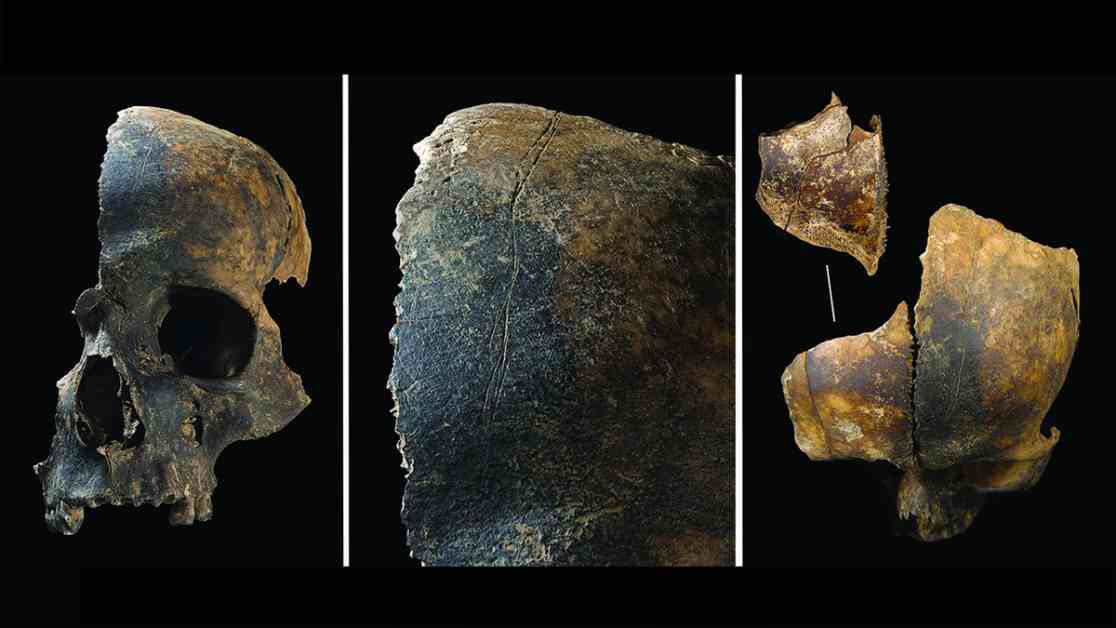Unprecedented Violence Revealed in 4,000-Year-Old Bones
In a startling discovery that sheds light on the brutal realities of Bronze Age Britain, archaeologists have uncovered evidence of unprecedented violence in 4,000-year-old human remains found at the archaeological site of Charterhouse Warren in the U.K.
Shocking Findings
Skull bones from the site reveal traces of fatal injuries that paint a harrowing picture of the past. Rick Schulting, an archaeologist at the University of Oxford, described the findings as “considerably darker” than expected, highlighting the extent of violent deaths that occurred over four millennia ago.
A detailed study published in the journal Antiquity by Schulting and his colleagues reveals the gruesome fate of at least 37 individuals, ranging from newborns to adults, who met their end during the Early Bronze Age. The bones show signs of scalping, tongue removal, decapitation, defleshing, evisceration, and even cannibalism, pointing to a level of violence rarely seen in ancient Britain.
The Gruesome Truth
Analysis of the fragmented bones uncovered at Charterhouse Warren paints a grim picture of the atrocities inflicted upon these ancient people. More than 30% of the skulls exhibited fractures indicating violent deaths, while approximately 20% of the bones bore cut marks made with stone tools, revealing the extent of postmortem processing the bodies underwent.
The presence of such extensive violence and body processing rituals suggests a brutal massacre of a community, with the aim not only to eliminate the group but also to dehumanize and ‘other’ them in the process. The motivations behind these horrific acts remain unclear, leaving researchers to speculate on possible reasons for this unprecedented violence.
A Window into the Past
The discovery at Charterhouse Warren offers a chilling glimpse into a dark chapter of British prehistory, raising questions about the social dynamics and political motivations behind such extreme violence. As experts continue to unravel the mysteries of these ancient remains, the true significance of this gruesome episode is slowly coming to light.
This groundbreaking research underscores the importance of archaeology in uncovering the hidden truths of our past, reminding us of the complexities and contradictions that shape human history. As we grapple with the implications of these findings, we are forced to confront the darker aspects of our shared heritage, challenging us to rethink our understanding of ancient societies and the forces that drove them to commit such heinous acts.
In the words of Rick Schulting, “It’s a stark reminder that people in prehistory could match more recent atrocities.” The echoes of the past reverberate through the present, urging us to confront the shadows that linger in the annals of history and seek to understand the depths of human cruelty that have shaped our world.




